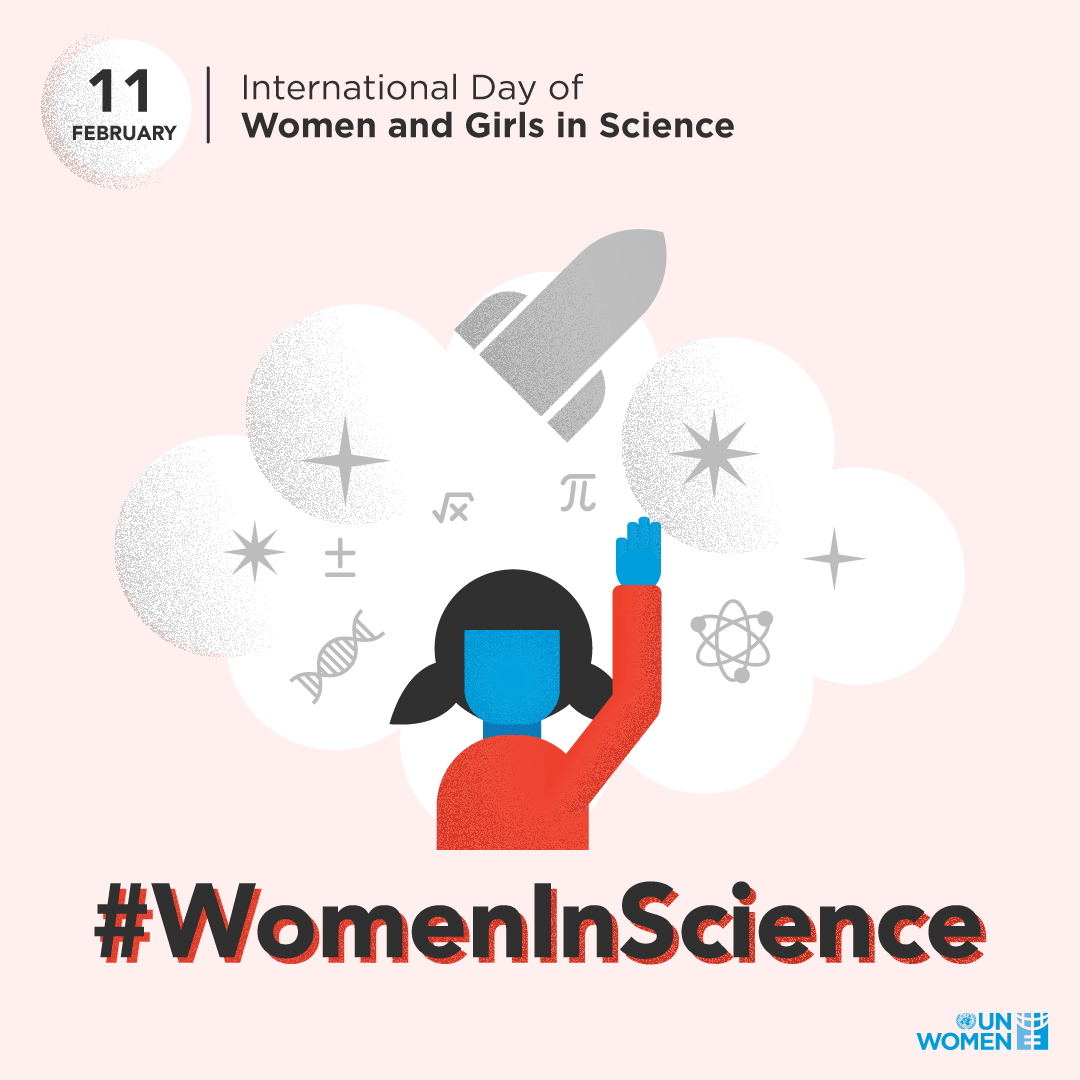
11 Feb An international day to honour women and girls in Science: a story featuring Dr. Catherine Hankins
To achieve the Sustainable Development Goals set out by the United Nations (UN), the world stage must continue to promote science and gender equality, also in the global health community. Although efforts have been made globally to engage women and girls in science, they are still often stigmatized and excluded. February 11th marks the UN-declared International Day of Women and Girls in Science, a day that is devoted to gender equality and female empowerment in every area of science.
Today is the opportunity to promote equal access to and participation in science for women and girls. As a global health organization, we recognize the critical role women and girls play in science and technology. There is no better illustration of that statement than the contributions to science made by female researchers affiliated with AIGHD, like global health leader Catherine Hankins, MD, PhD. In addition to her academic positions, Catherine Hankins takes on a lead role in scientific advisory committees and (co)chairs multiple international health conferences (read her accomplishments in the final section).
Catherine is keenly interested in scientific capacity development and advancing women in global health and science. She has made a major difference in the global health arena through lifelong contributions in health and science, and in advancing women. The Namibia INTEREST conference chaired by Catherine was the first INTEREST to have two local chairs instead of one: naming both a woman and a man in 2019, a change that is becoming a tradition. Furthermore, the INTEREST conferences aim to have an equal distribution of male and female speakers and session chairs, as both are equally equipped to take on these roles and be role models for the upcoming generation of young African scientists. Still, women remain under-represented in science, especially in Africa, where only 28% of African researchers are women.
Advancing women in science and global health is something that Catherine strongly believes must be at the forefront of our consciousness. “There are many things we need to do still, but we are on the way. It is an incremental process, with important advances occurring. There were few role models for me in school and even fewer in university. But more and more women are active in science.” As pointed out in a Lancet issue on advancing women in science, medicine, and global health, although things have shifted significantly in the past decades and efforts are being made on gender inclusivity and diversity, the gap remains wide. “EDCTP is tracking the percentage of grants awarded to women and the percentage of career support awards given to women. Peer reviewers are required to take into account parental career gaps when assessing the productivity of candidates for career awards. EDCTP is discussing the possibility of mandatory completion of at least one training module on sex and gender for all people submitting grant proposals or conducting peer reviews”. Watch this informative video to learn more about the importance of assessing Sex and Gender Integration in Peer Review:
“As for what is needed urgently right now, Catherine says the top priority is to consider sex and gender in COVID-19 research”. In 2013 Catherine was named to the Order of Canada in recognition of her achievement of outstanding merit. It is no coincidence that Catherine was appointed co-chair of Canada’s COVID-19 Immunity Task Force by Canada’s Prime Minister, Justin Trudeau, in April 2020. Her expertise in public health, epidemiology, infectious disease research, and stakeholder engagement, all of which are fields related to the pandemic, is an asset. “Working on the COVID task force is both daunting and exciting. We cannot underestimate this pathogen, its interactions with our immune systems, and its effects on individuals, families, communities, health care systems, and economies. The economic impact of COVID-19 is falling mainly on women, in what people are calling a ‘she-cession’, rather than a recession. Many gains made in recent years in employment and pay equity are slipping. With lockdown measures, the decline in research productivity among women scientists is greater than among men, often reflecting choices made about sharing of child raising responsibilities in the home.”
Catherine has a message to the global community, and more particularly to women and girls:
“Believe in yourself and model yourself on successful women. Reach out to them for advice. Talk about what you are facing and how to address it. Do not think you have to solve it yourself. Societal norms about women and science are changing; it is happening. You can be part of it.”
Dr. Catherine Hankins’ contributions to research and science:
Catherine is a woman performing at the top in academics where she holds positions as:
- Professor in Public and Population Health at McGill University
- Honorary Professor at the London School of Hygiene and Tropical Medicine
- Assistant Professor and deputy Director of Science at the Amsterdam Institute for Global Health and Development (AIGHD)
Catherine chairs/chaired renowned international conferences and scientific advisory committees. As a community medicine specialist, she:
- Co-Chairs the Eastern Europe and Central Asia INTERACT Workshops
- Chairs the Scientific Advisory Committee of the European and Developing Countries Clinical Trials Partnership (EDCTP), as well as its Gender and Diversity Working Group
- Chairs the Scientific Advisory Group of the USA National Institutes of Health HIV Prevention Trials Network (HPTN)
- Was the Scientific Chair of the annual African INTEREST conferences on HIV research in resource-limited settings from 2014 to 2020
- Was Chief Scientific Adviser to UNAIDS in Geneva and led the UNAIDS’ work on women in clinical trials
- Led the development of Good Participatory Practice Guidelines for trials of Emerging Pathogens for WHO
- Co-chairs Canada’s COVID-19 Immunity Task Force
